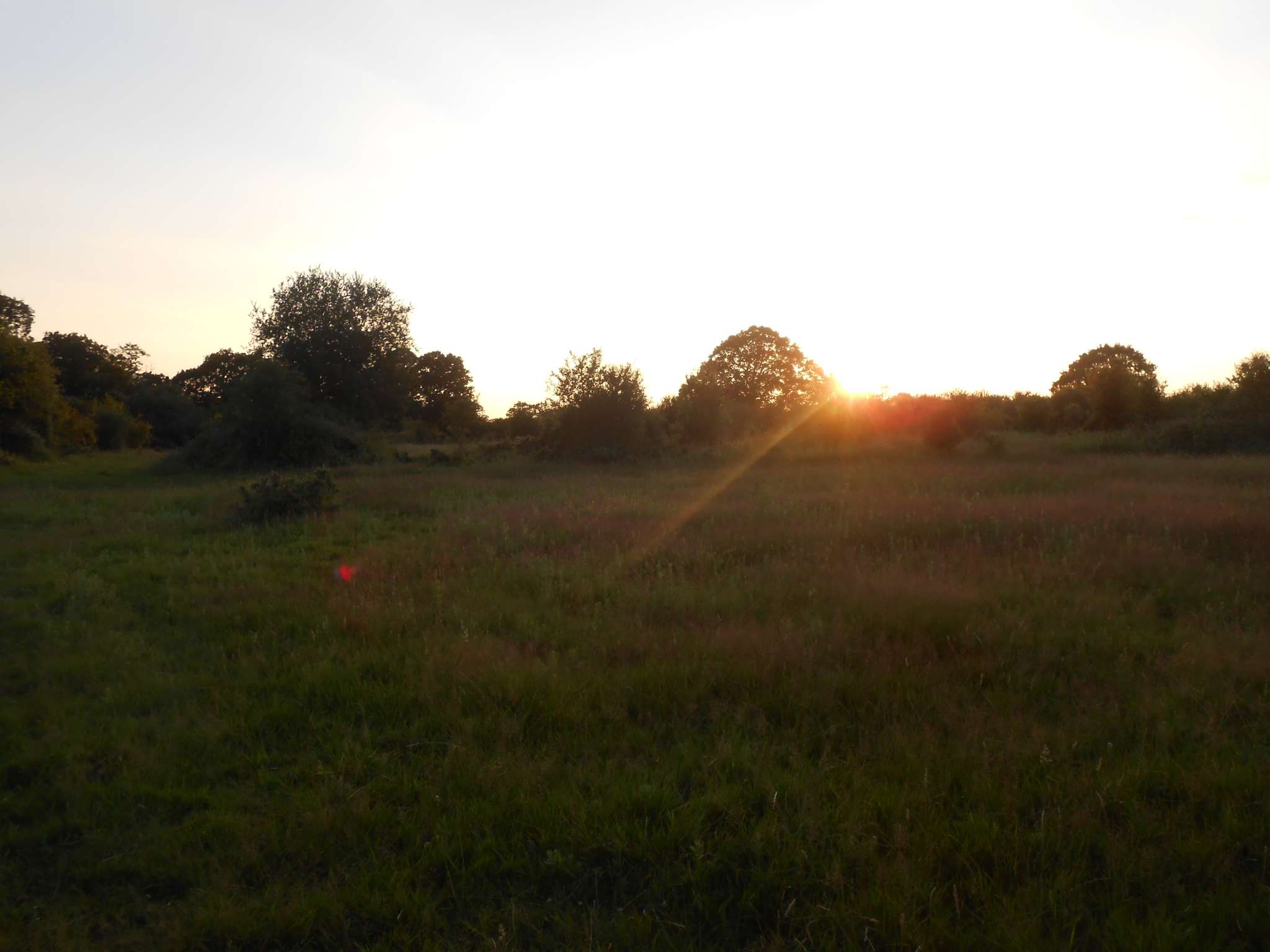

At the beginning of July 2021, I went on a week-long fieldwork course to Knepp Park Estate with Operation Wallacea. Along with a group of other young people my age, I joined in with many wildlife surveys.

On invertebrate surveys we learned how to use Malaise traps and pan traps, use sweepers and pooters and pin, identify and document our collected insects. During habitat surveys we were taught how to identify wildflowers and grasses along 100m transects and then use the collected data to contribute to the UK Habitat Map that the researchers were making of the entire site – I love identifying plants and doing this first sparked my interest in grasses.

On large mammal surveys we tracked the herbivores (which are being used at the site to graze and browse the scrub vegetation in place of the ancient aurochs, tarpan and wild boar) using hoof prints and droppings, and undertook point surveying on transects.
A bat specialist came one evening to teach us about bat species in the UK and their importance in ecosystems. Every night after this, we walked out to a lake with bat detectors to see what species we could find and listen to their echolocation and contact calls – to hear these tiny creatures zipping and bubbling over the water catching their prey and feel a fluttering whoosh as they expertly darted over our heads in the darkness was so thrilling; finally (and my favourite part of the week), we went with the team’s ornithologist in the early mornings to ring birds after catching them in mist nets strategically positioned between the scrub – seeing the birds up close (some I’d never even seen before, such as the lesser whitethroat and the garden warbler), learning how to tell the sex and age of a bird and about the reasons for different measurements, being taught about each species (about how to identify it but also about its habits, where it will probably migrate to and more), and then placing them on our hands to let them fly off, was an experience I will never forget and it inspired me to one day gain my own bird ringing licence.
Another part of this week was dedicated to doing a data analysis course on data collected from research in the coral reefs in Honduras. We learned about carnivorous and herbivorous fish feeding guilds, abundance and biomass, algae, coral growth and importance, and the threats to coral reefs. After this we wrote short dissertations on the data using a question of our choice and then were given lessons on how to use the coding system R to make our own graphs and statistically analyse t he data in order to construct our conclusions. I really believe that this week was invaluable in helping me to gain experience in doing practical fieldwork and taught me so much about the importance of conservation, especially rewilding and its endless benefits to reviving working ecosystems.
data analysis course on data collected from research in the coral reefs in Honduras. We learned about carnivorous and herbivorous fish feeding guilds, abundance and biomass, algae, coral growth and importance, and the threats to coral reefs. After this we wrote short dissertations on the data using a question of our choice and then were given lessons on how to use the coding system R to make our own graphs and statistically analyse t he data in order to construct our conclusions. I really believe that this week was invaluable in helping me to gain experience in doing practical fieldwork and taught me so much about the importance of conservation, especially rewilding and its endless benefits to reviving working ecosystems.

One thing that stood out to me at Knepp was how interconnected all species are; the simple rootling action of the Tamworth pigs creates the perfect conditions of disturbed soil in which the seeds of wildflowers like selfheal and scarlet pimpernel can germinate, providing a food source for the endangered turtle doves – these endangered birds have a stronghold at Knepp and I was lucky enough to hear some gently calling while I was there.
Blog post and photos by Florence Turner
Social Media Links